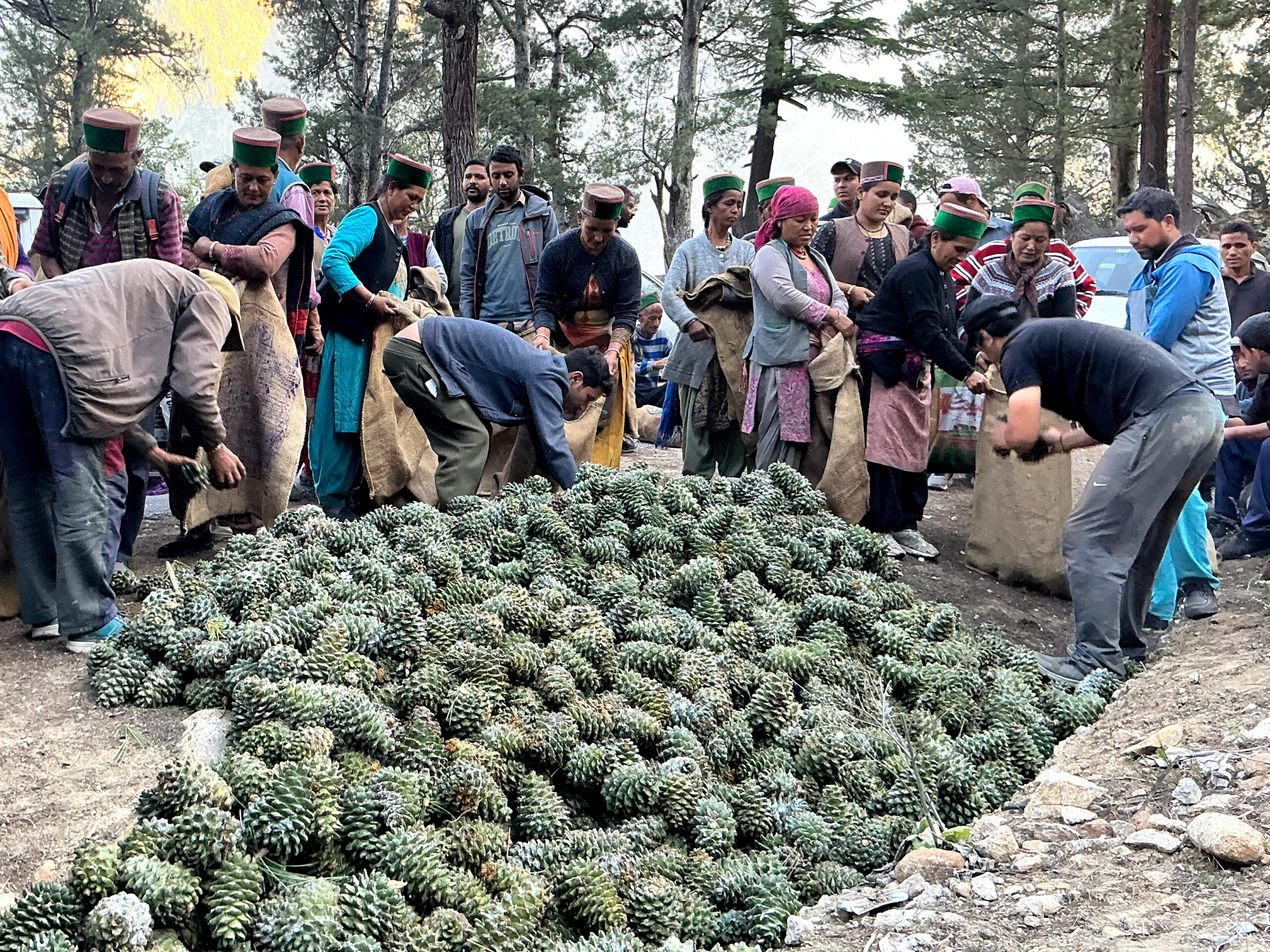by Manshi Asher
Sunderlal Bahuguna may have departed, but there are many formidable repositories of diverse oral and embodied knowledge that we could fall back on
In the era of irreversible ecological destruction, initiatives to ‘save the environment’ mushroom every day. It is, after all, also the age of ‘solutions’. ‘Green’ is now a pre-fix to growth and technology. As an environmental activist, one is constantly grappling with dilutions and schisms within environmentalism. It is crucial, today more than ever, to revisit the roots and branches of ecological movements on our land. Last month, we lost a persistent worker of one such struggle. ‘Earth warrior’, ‘Chipko Bahuguna’, ‘Gandhian fakir’ — many titles have been bestowed upon Sunderlal Bahuguna.
To understand the environmentalism he exemplified, one could also turn to Himachal where two activists in particular engaged closely with him. Both, Kulbhushan Upmanyu, who started his work as a sarvodayi, and Ratan Chand, a communist, are now in their 70s. Both practising farmer-horticulturists hail from Chamba and have been at the forefront of environmental work in the region.
From a family of priests (sewadars) of Chamba’s famous Laxmi Narayan temple, Ratanji’s gentle demeanour, unassuming appearance and non-evocative speaking style camouflage his dogged nature. At an early age, he distanced himself from the family occupation as he explored his Left leanings. His home in Saho village has photos of Karl Marx, Gandhi and Vivekanand on the wall. A staunch trade unionist who joined the Communist Party of India (CPI), his activism ranged from fighting for wage rights of the labourers at a hydropower project in Chamba, to gaining compensation for those who lost their land to it back in the late 1970s.
When the Baira Siul project became functional, he was quick to observe the deforestation, landslides and threats to local lives and livelihoods. This laid the ground for building an environmental consciousness. In 1981-82, Bahuguna, on his Kashmir to Kohima yatra carrying the message of protecting the forests of the Himalayas from commercialisation, was visiting Chamba. Ratan Chand paid him a visit and from then on, even as he remained associated with the CPI, he became an ally of Bahuguna, visiting his Silyara Ashram in Uttarakhand annually… Read More
This article was first published in The Tribune
Featured image by The Tribune






